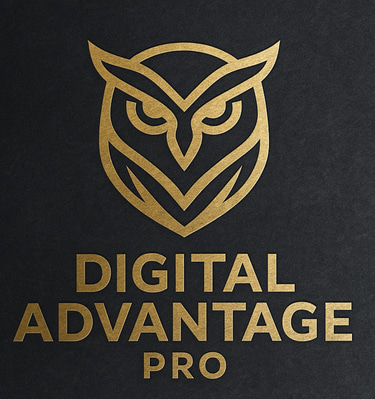Every Business Is Becoming an AI Company—Here’s How to Do It Right
Embrace AI to future-proof your business
AIARTIFICIAL INTELLIGENCEAUTOMATIONTECHNOLOGYDIGITAL AUTOMATION
Eric Sanders
6/15/20254 min read


Why AI is Not the Future—It’s the Present
Artificial Intelligence is no longer reserved for tech giants or futuristic laboratories. It has become a transformative force across industries, reshaping how we work, create, and solve problems. Businesses that once relied solely on human ingenuity now face an urgent imperative: evolve into AI-powered organizations or risk falling behind.
The idea is not whether companies will become AI-driven but how smartly and ethically they’ll get there.
This isn’t just a technological shift—it’s an operational, cultural, and strategic revolution. Every business, regardless of size or sector, needs to reimagine itself as an AI company. But embracing AI requires more than installing software or hiring data scientists. It demands a complete ecosystem—one built on human-machine collaboration, ongoing upskilling, diverse talent, and thoughtful implementation.
My Experience With AI Transformation
A few years ago, I worked in a mid-sized retail company that was trying to stay competitive in a digital-first world. With e-commerce giants eating into our market share and customer expectations shifting rapidly, our executive team made a bold declaration: “We’re becoming an AI-powered company.”
It sounded exciting—until we realized no one quite knew what that meant.
Our first mistake was treating AI like a plug-and-play tool. We invested in predictive analytics platforms and chatbot technology, but without proper planning or understanding. Employees felt threatened, departments were confused, and adoption stalled.
It wasn’t until we shifted our focus—from tools to people—that we began to see results. Leadership committed to upskilling initiatives, hosting AI literacy workshops for non-technical teams and providing clear use cases where AI could augment rather than replace human roles. As one team leader put it, “We stopped asking how AI could replace us, and started asking how it could support us.”
Slowly, trust built. Productivity rose. Customer service improved. We became not just a company that used AI—but a company that understood how to thrive with it.
What Businesses Must Get Right With AI
To successfully evolve into AI-driven enterprises, companies need a human-centric and strategic approach. According to the Forbes article “Every Business Is Becoming an AI Company—Here’s How to Do It Right,” organizations need to focus on four key pillars:
1. Upskill the Workforce, Constantly
AI isn't static, and neither should your workforce be. One of the most common mistakes organizations make is assuming that only the tech team needs AI training. But to fully integrate AI into operations, everyone—from HR to sales to logistics—needs to gain AI literacy. Some Key takeaways:
- Develop continuous learning programs tailored to each department.
- Promote internal mobility through AI training—data-literate employees can move across roles more easily.
- Offer both technical training (for engineers and data scientists) and conceptual training (for project managers and executives).
“AI is not a job destroyer; it’s a job transformer—if companies commit to upskilling at scale.”
2. Enable Human-Machine Collaboration
The most productive AI systems aren’t those that replace humans, but those that work alongside them. The ideal AI-powered company understands when to let the machines handle repetitive tasks and when to tap into human creativity, emotion, and decision-making.
AI excels at:
- Analyzing data at scale
- Identifying patterns human eyes may miss
- Automating repetitive and rules-based tasks
Humans excel at:
- Contextual thinking
- Relationship management
- Ethical decision-making and empathy
Organizations should actively design workflows where human strengths complement machine efficiency. This is where true productivity gains materialize.
3. Hire with Diversity and Inclusion in Mind
Any technology, including AI, reflects the biases of its creators. A homogenous AI development team can unintentionally build systems that reinforce inequalities or miss key variables important to diverse populations.
Companies must build teams that reflect the breadth of their customer base—and ensure that diversity extends across race, gender, age, socioeconomic background, and more.
- Diverse teams create more inclusive and ethical AI applications.
- Representation reduces the risk of biased algorithms or flawed datasets.
- Varied perspectives push for better problem-solving and innovation.
According to Forbes, “Hiring diverse talent is not just a social good—it’s a business imperative in the age of AI.”
4. Implement AI Thoughtfully and Sustainably
AI implementation should be governed by clear ethical principles, transparency, and long-term thinking. Hasty rollouts or black-box algorithms can backfire—both in terms of public trust and internal adoption.
Companies must be deliberate in ensuring:
- Responsible data sourcing and privacy protection
- Algorithmic transparency—users should understand how and why decisions are being made
- Environmental sustainability in terms of energy usage and computing power
In other words, don’t just ask “Can we build this?” Ask, “Should we?” and “How will it make our organization better for everyone?”
Bridging the Gap Between Potential and Practice
Businesses today are sitting on a mountain of potential. AI offers capabilities we could only dream of a decade ago: real-time customer insights, forecast modeling, supply chain optimization, and even creative collaboration.
But potential alone is not progress. Real transformation happens when:
- Leadership commits to long-term AI roadmaps.
- Employees feel empowered—not replaced—by automation.
- Systems are built with integrity and designed for humans as much as for performance.
You don’t have to become a Silicon Valley startup to use AI wisely. Whether you run a local bakery or a multinational retail chain, there are AI strategies that fit your scale and purpose.
“AI is a tool—not a destiny. How we use it defines whether we innovate or regress.”
The New Competitive Edge
McKinsey reports that companies integrating AI at the core of their business models can achieve up to a 20% increase in cash flow. But perhaps more importantly, these companies lead with agility, retain top talent, and strengthen customer trust.
In short, adopting AI isn’t just about efficiency—it’s your new competitive edge.
Are You Ready to Be an AI Company?
The future doesn’t belong to companies with the biggest budgets or flashiest tools. It belongs to those willing to rethink their structure, retrain their people, and responsibly reimagine what's possible.
So, here’s the question your business needs to answer:
What will it take for you to become not just a company that uses AI—but a company that leads with it?
Efficiency
Transform your workflows and reclaim your time.
Contact Us
Need A Custom Solutions? Lets connect!
eric.sanders@thedigiadvantagepro.com
772-228-1085
© 2025. All rights reserved.
